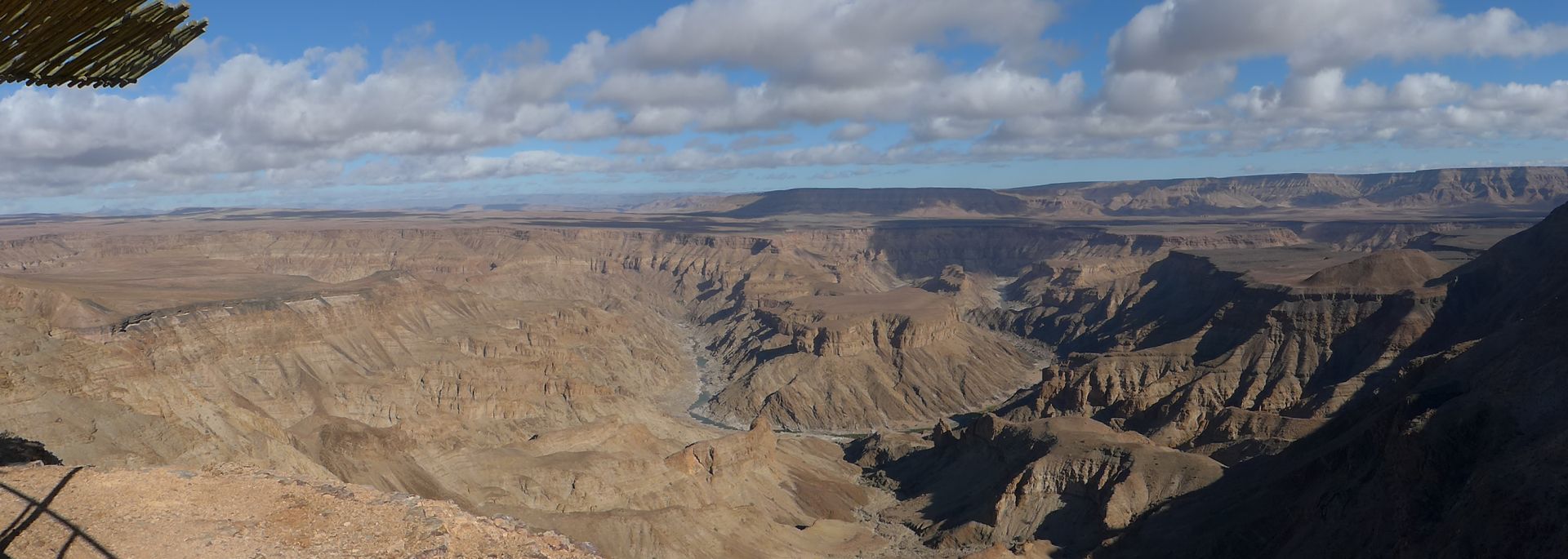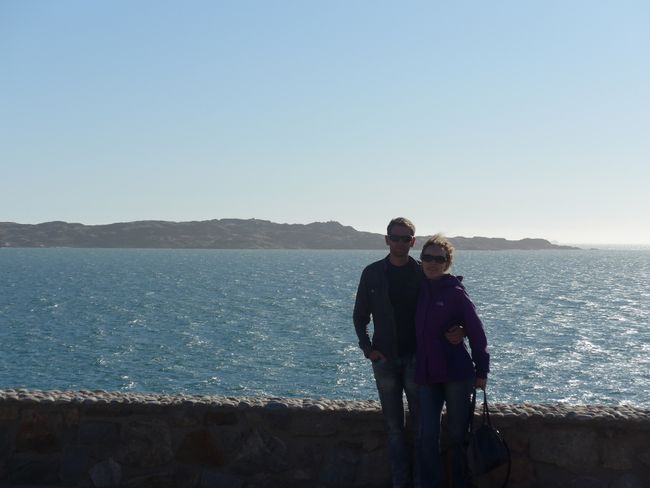Phnom Penh (Mekong River Cruise Part 3)
شايع ٿيل: 01.03.2019
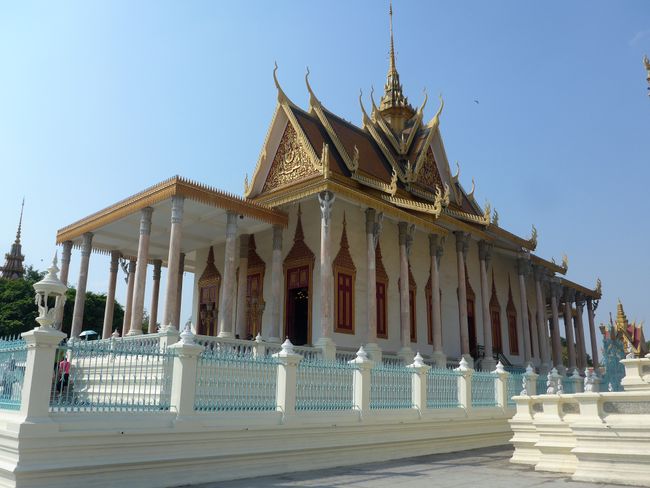
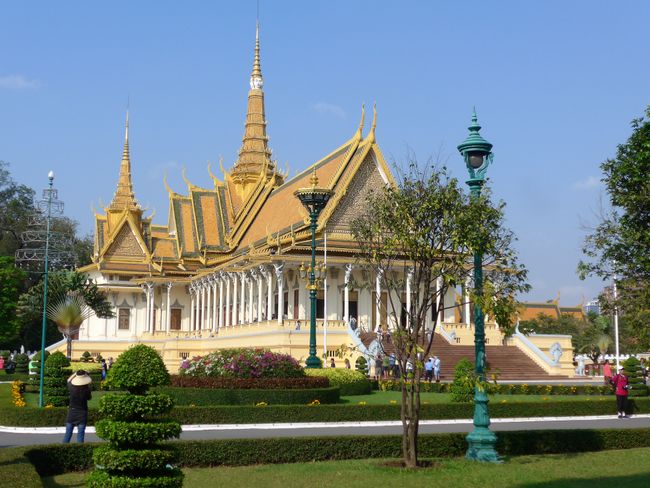
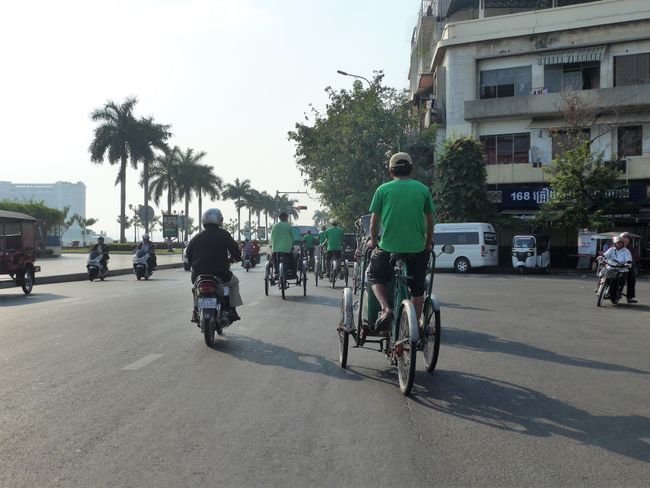
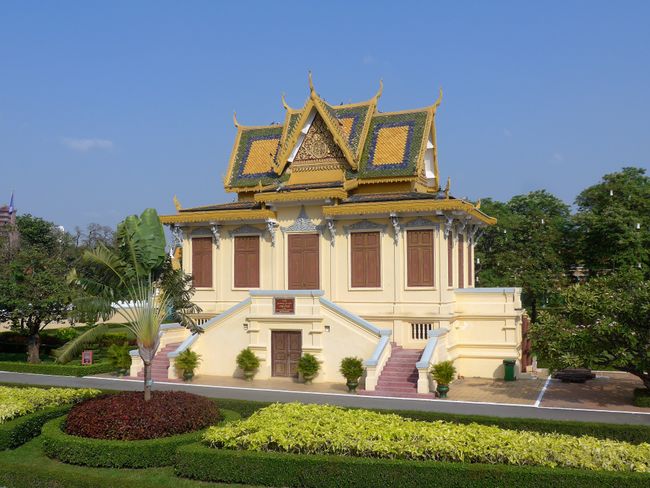
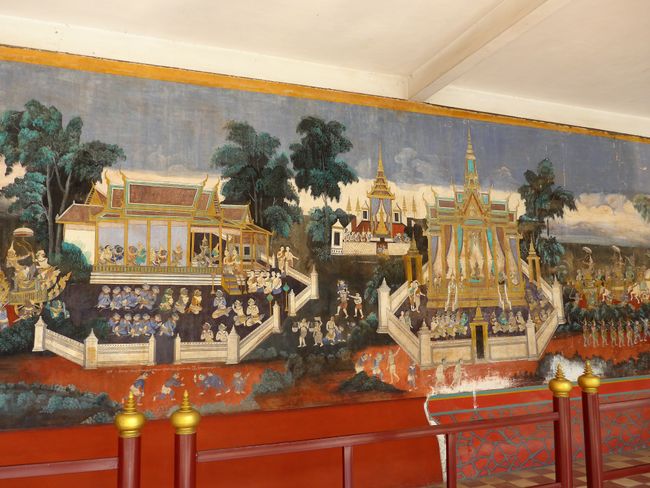
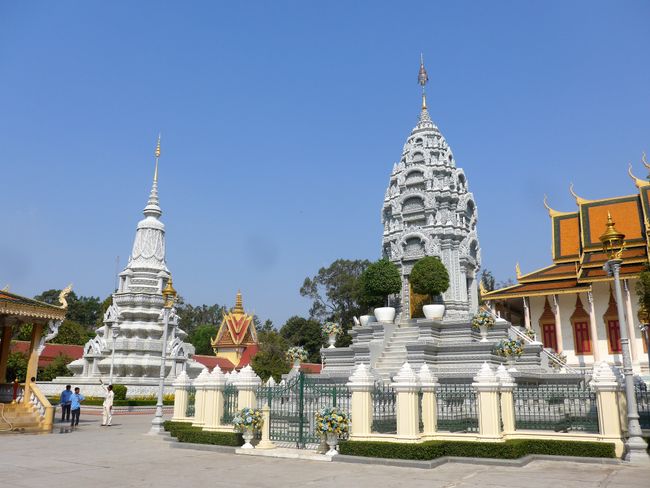
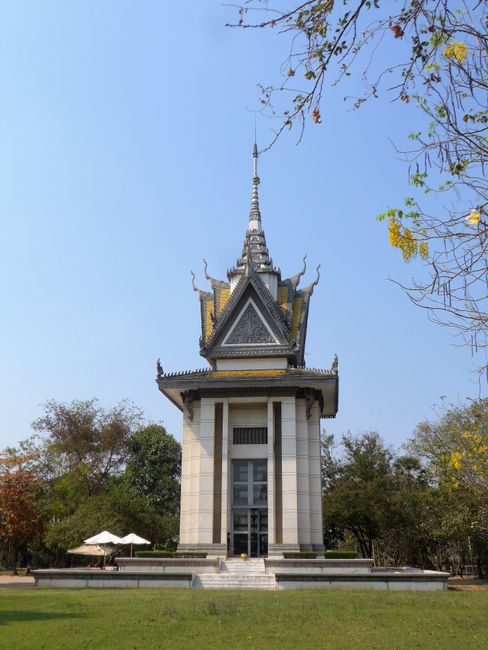
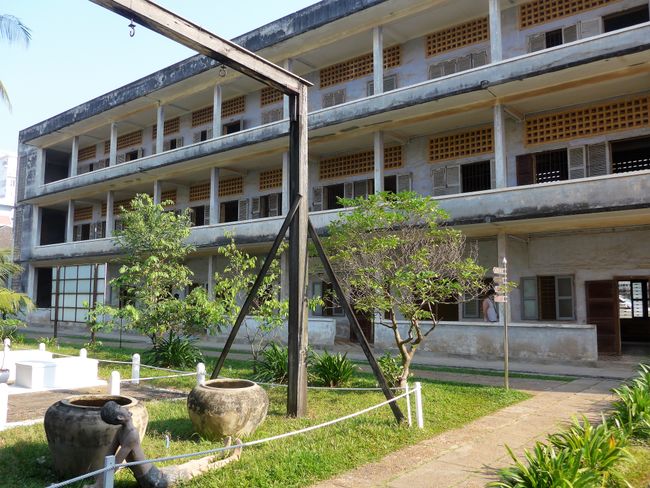
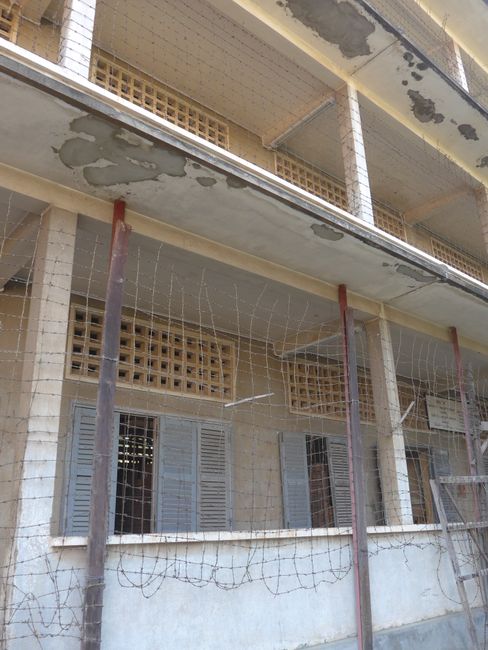
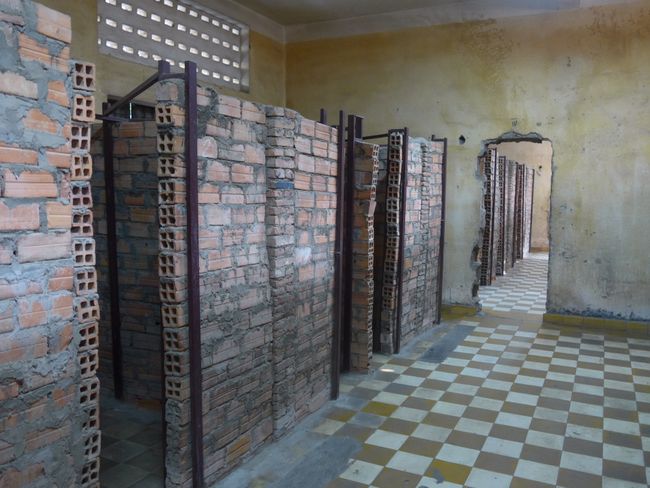
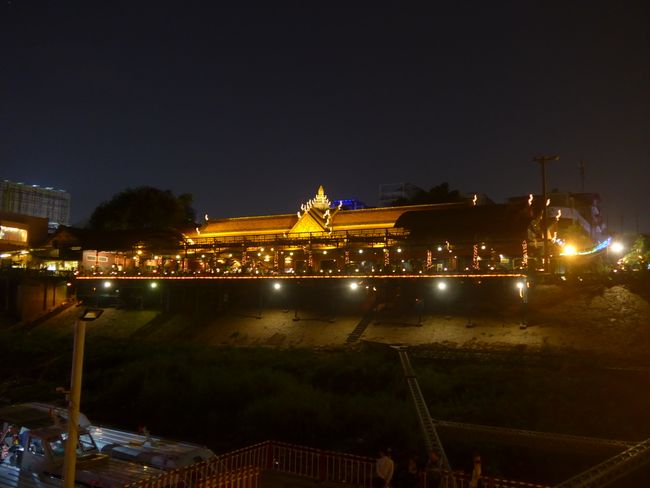
نيوز ليٽر جي رڪنيت حاصل ڪريو
In the morning, we arrived in Phnom Penh, the capital of Cambodia. The economic development here has progressed much further than in rural areas. The skyline features some high-rise buildings and we saw many construction sites of ambitious projects.
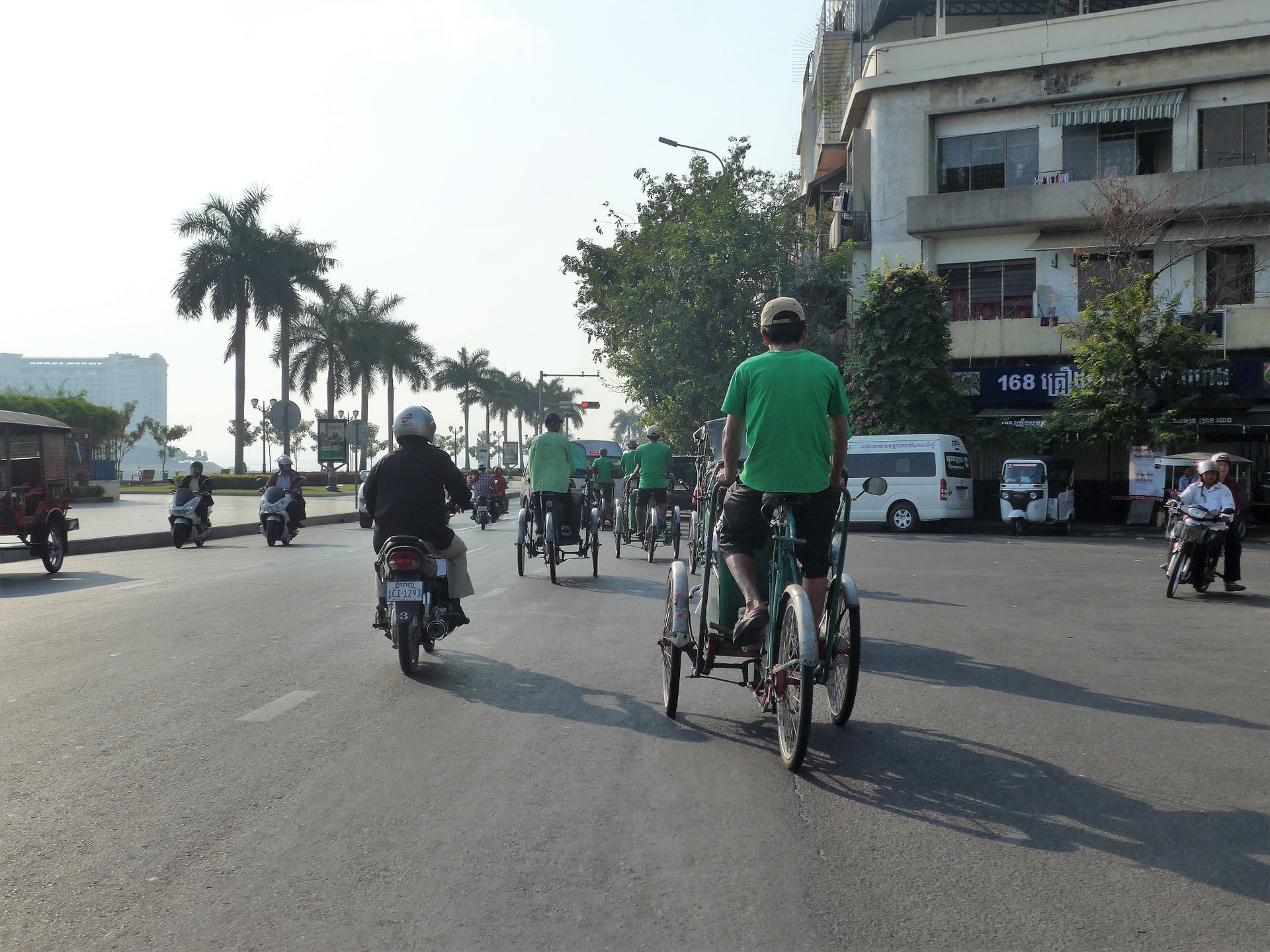
Our excursion first took us to the Royal Palace. Most of the buildings there were constructed by the French during the reign of Norodom I (1860-1904). The royal family still lives here today.
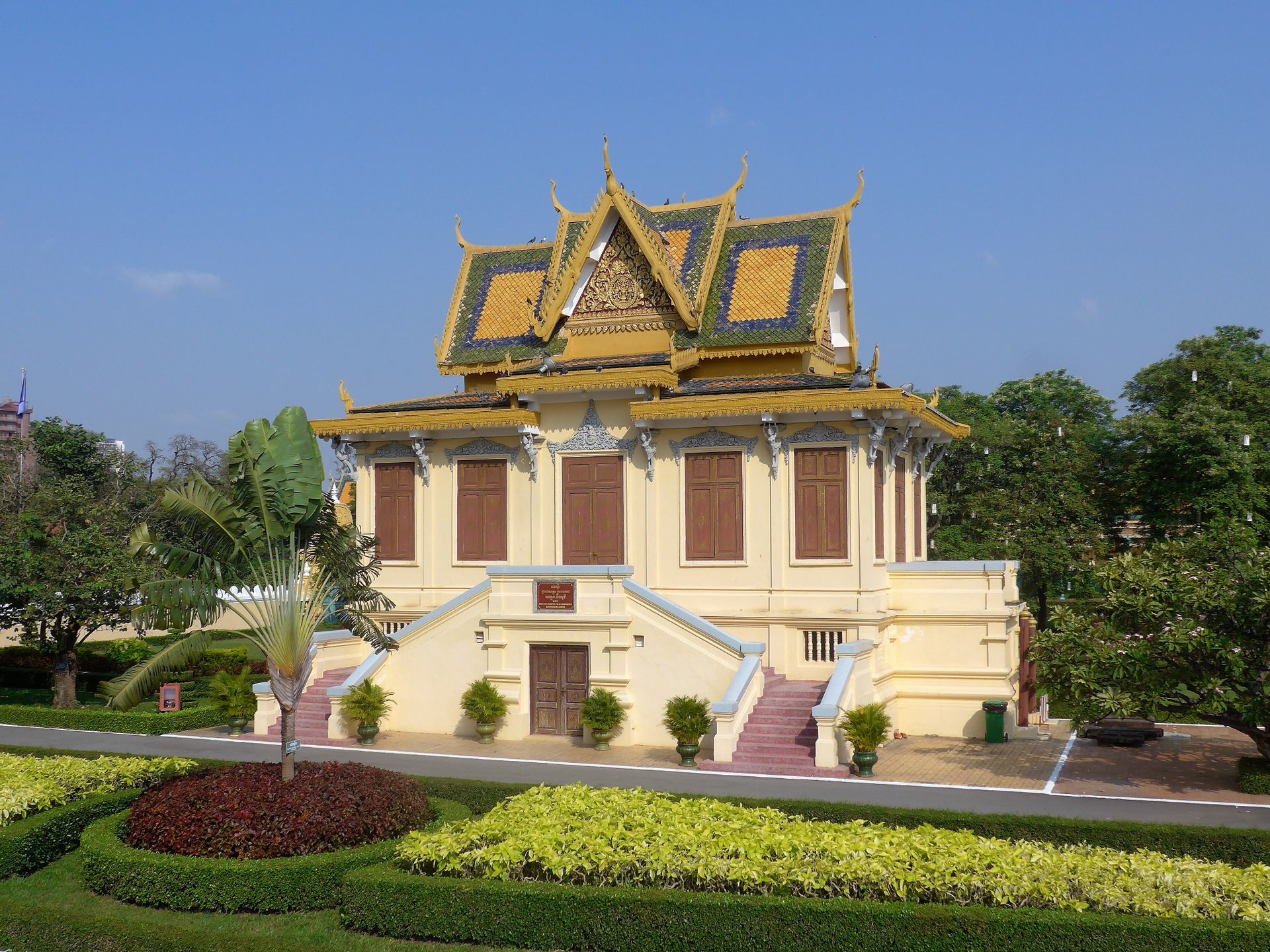
The Throne Hall resembled Thai buildings and is still used today as a representative space for royal receptions. We were not allowed to enter or take photos inside, but we could glimpse into the splendidly decorated room through the window.

On the grounds of the Royal Palace is also the Silver Pagoda, one of four temples in Cambodia where no monks reside. The entire floor is covered with silver tiles. It houses particularly valuable religious artifacts and Buddha statues. There is a 90 kg statue made of solid gold and adorned with 2086 diamonds.
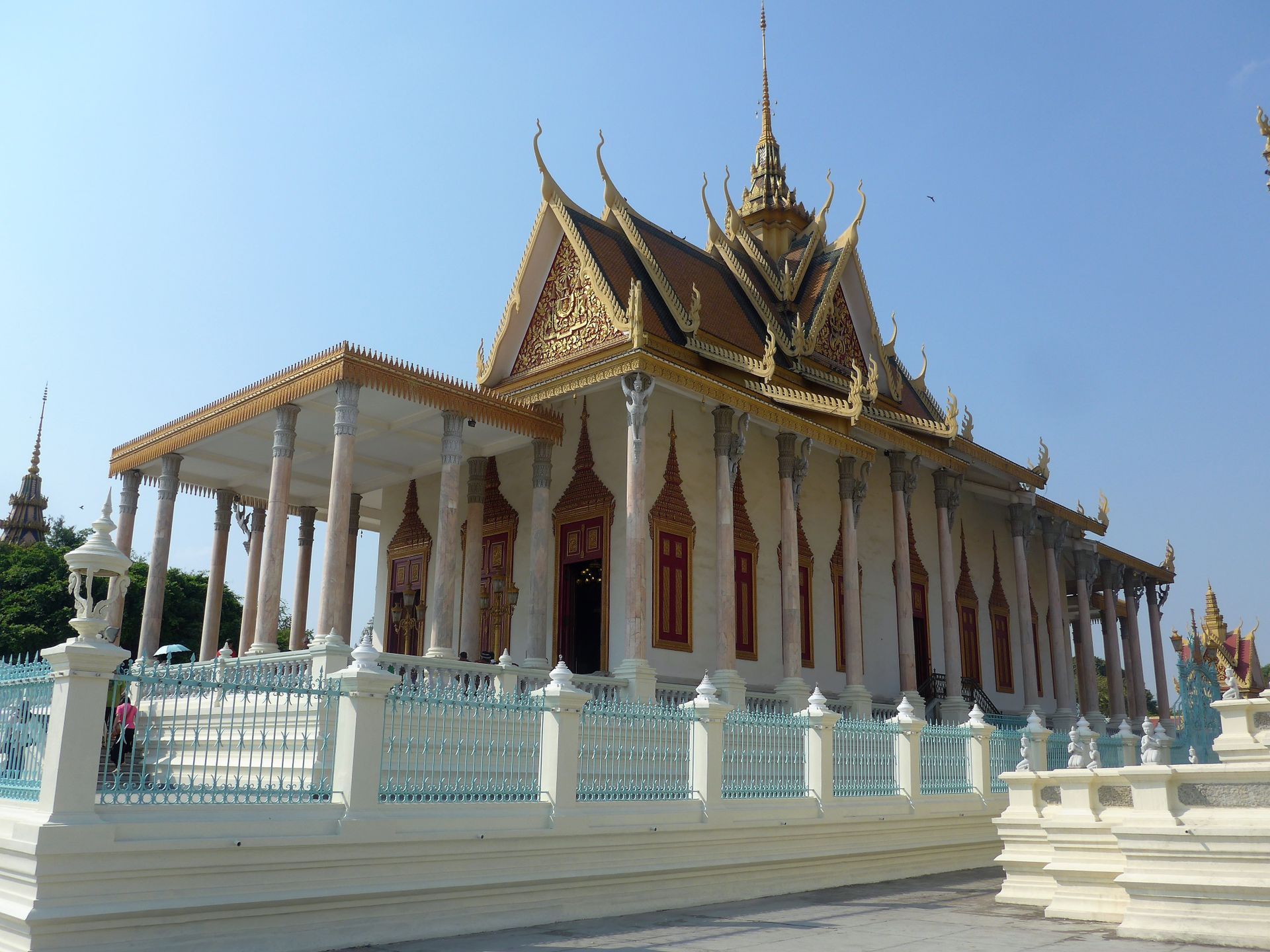
The pagoda is surrounded by a gallery where the Reamker myth (Ramayana) is depicted on an area of 600 m². This lengthy love story plays an important role in Hinduism. As our guide explained, Buddhism in Cambodia is mixed with Hindu elements, so a version of the Ramayana story is also well-known here.
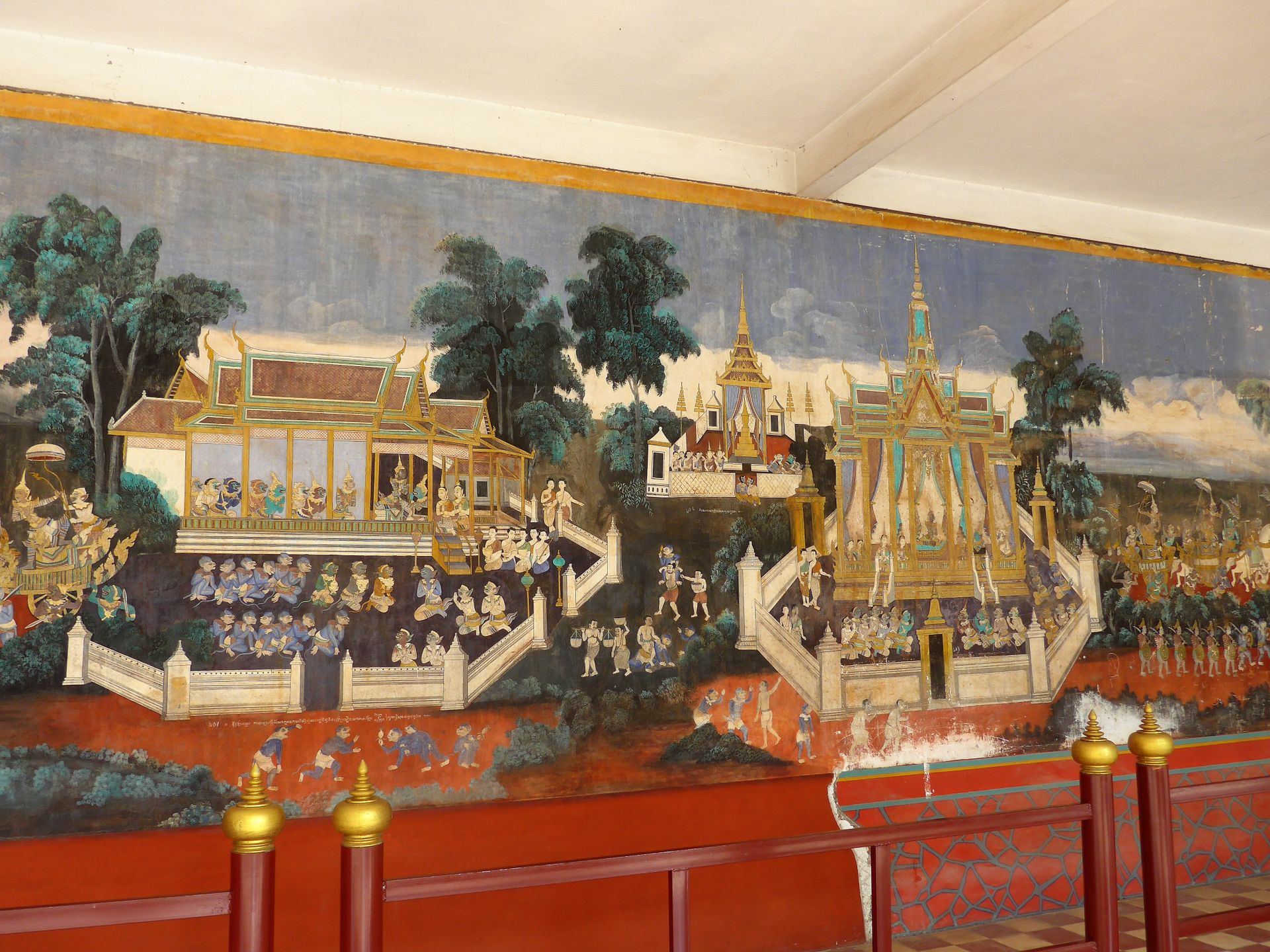
We also saw the stupa, which is the tomb of a deceased royal daughter.
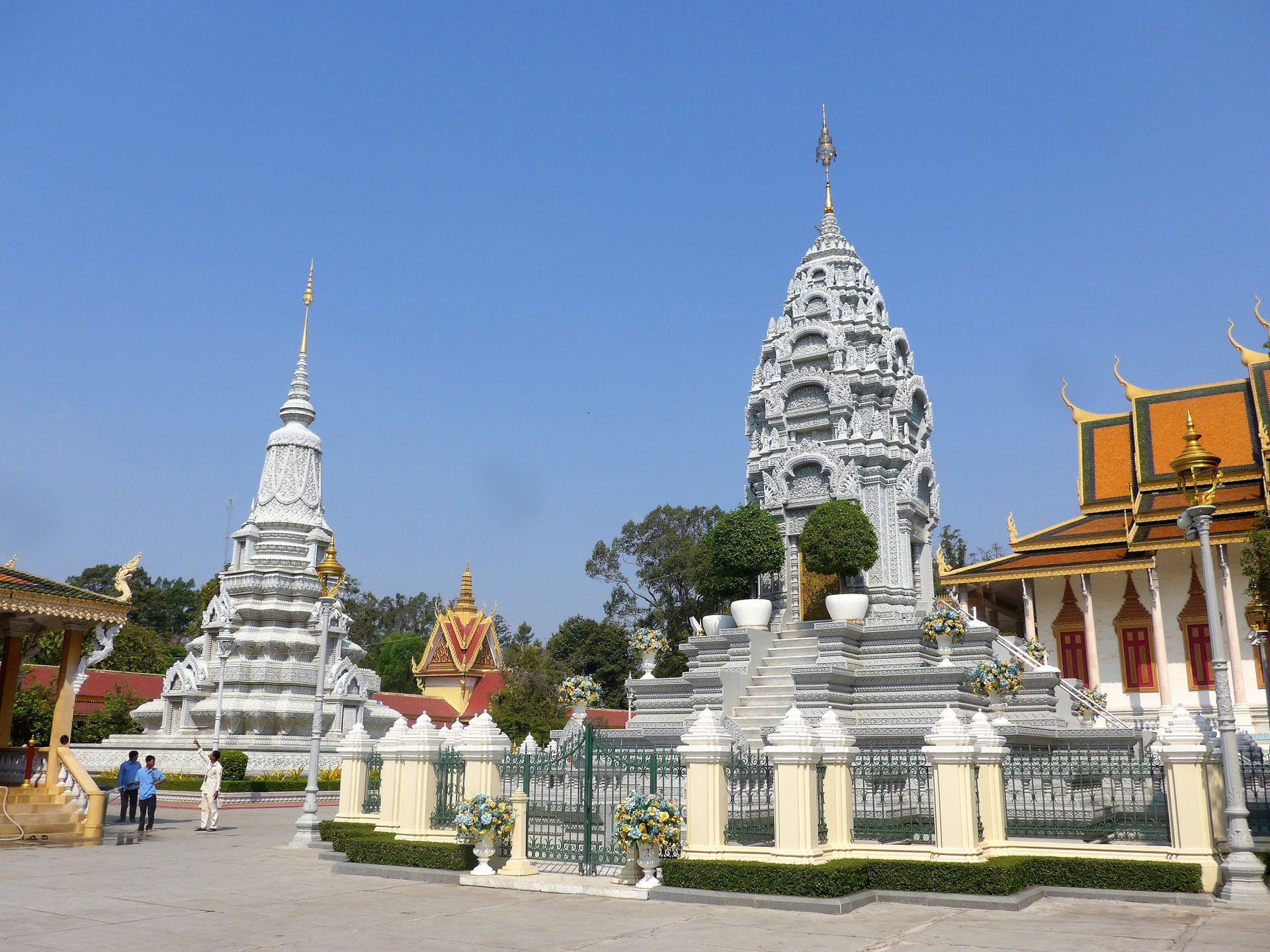
In the afternoon, we visited the Killing Fields, where about 10,000 people lost their lives during the reign of Pol Pot from 1975-79. We saw the former mass graves and a memorial pagoda where the bones and skulls of the victims are kept.
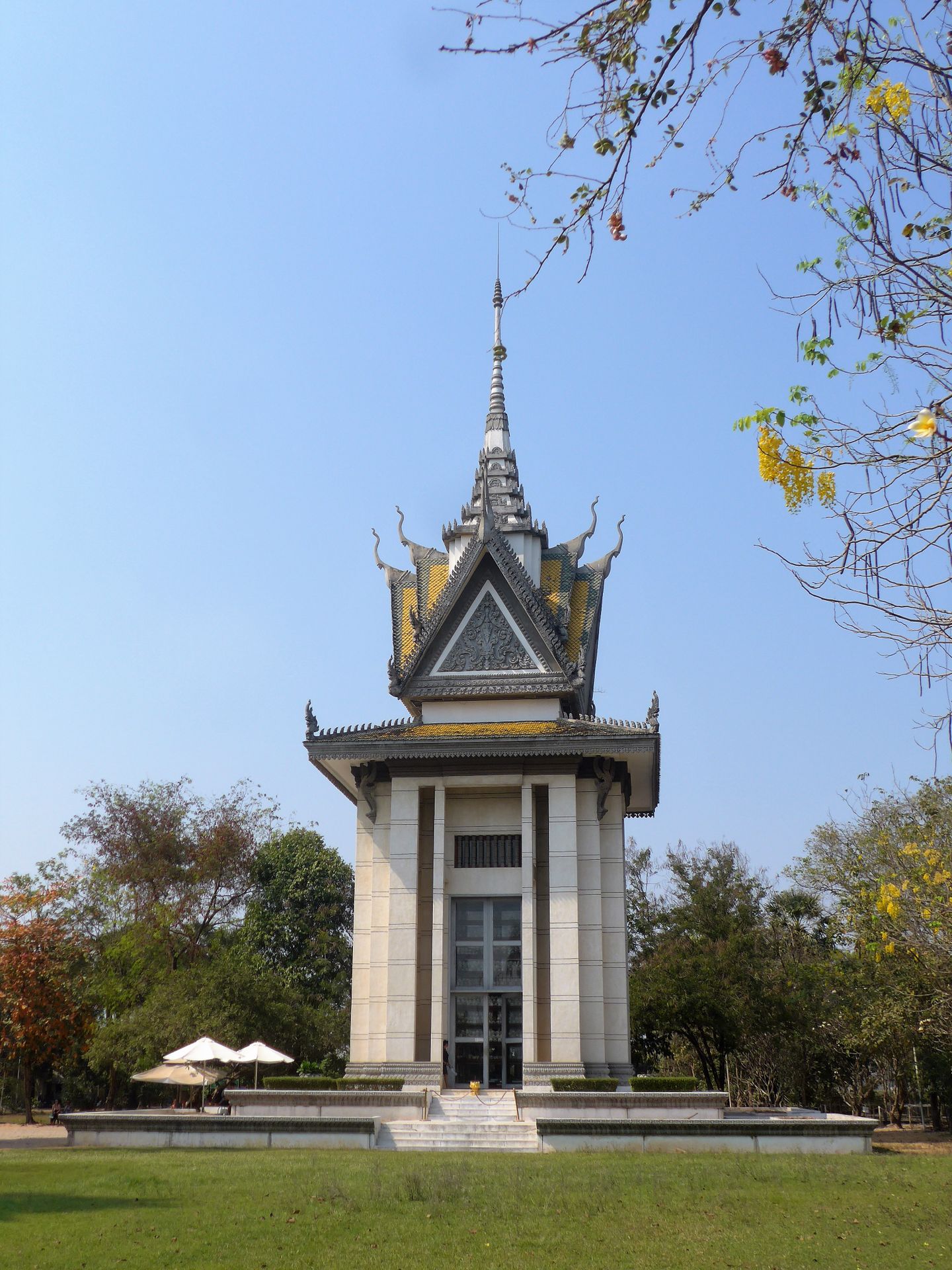
Afterwards, we went to the Tuol Sleng Genocide Museum. It used to be a school and was then converted into the torture prison of the Khmer Rouge.

Here, about 20,000 people were held captive and tortured in small individual cells. Those who did not die from torture were taken to the Killing Fields and killed there.
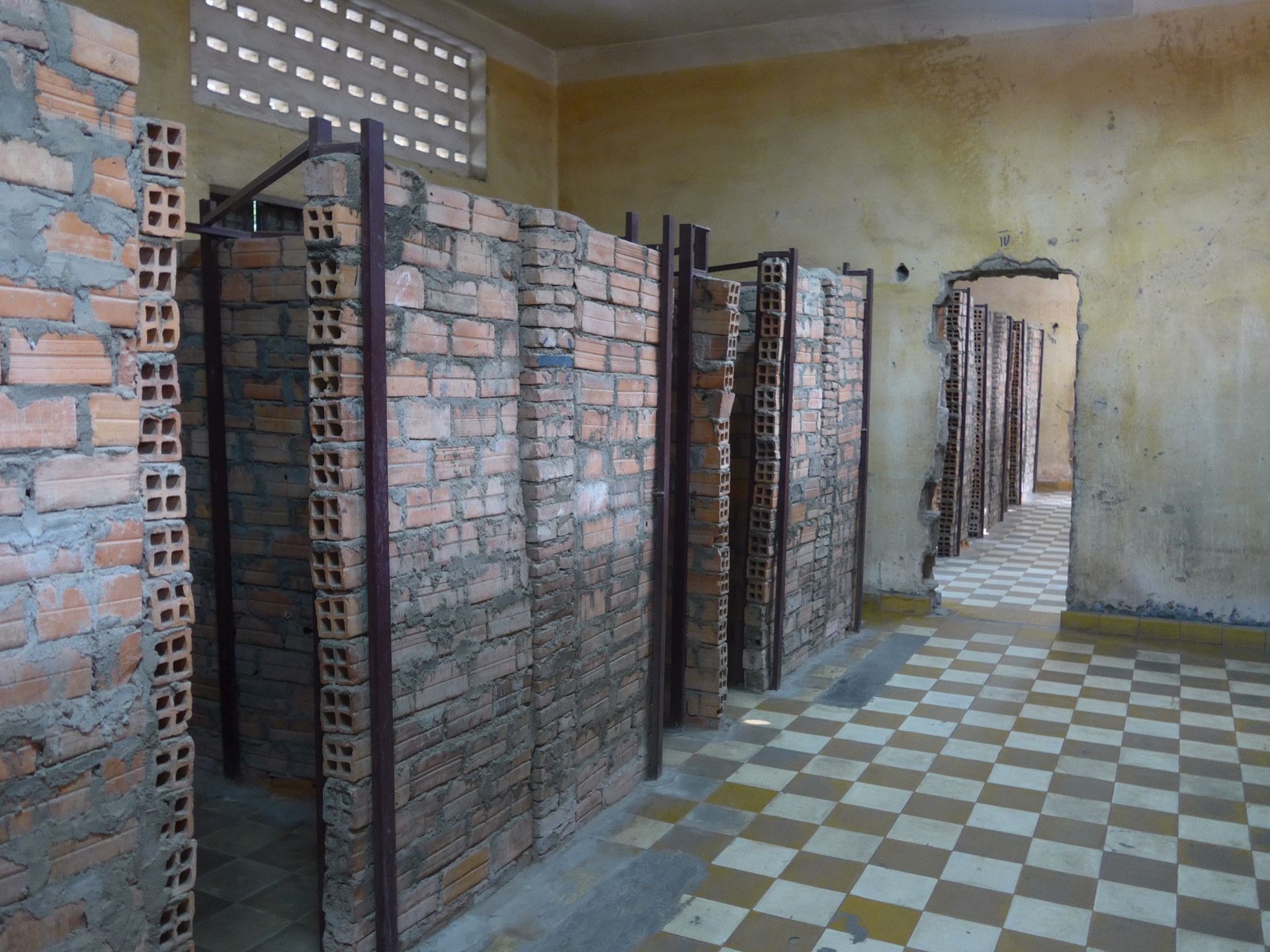
In the evening, we strolled through the night market and along the riverbank.

نيوز ليٽر جي رڪنيت حاصل ڪريو
جواب
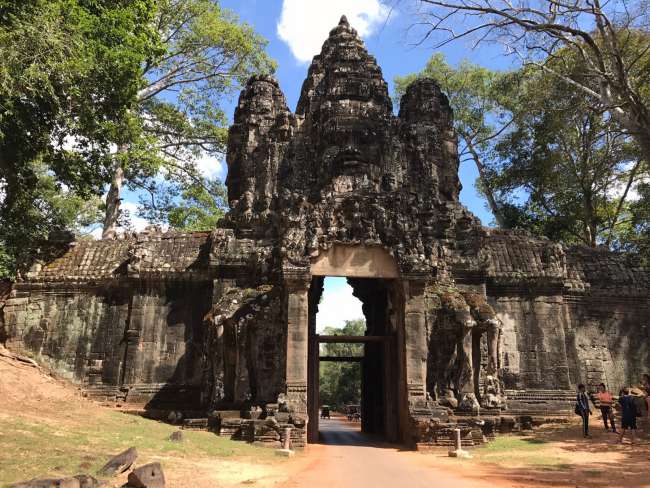
سفر جون رپورٽون ڪمبوڊيا
